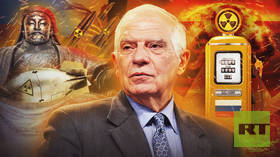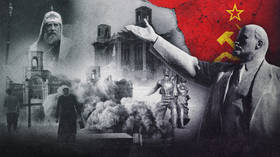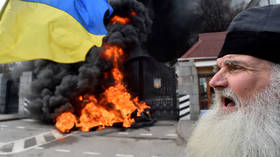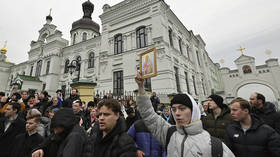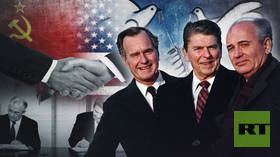The Last Crusade: How the conflict between Russia and the West has fueled a major split in the Orthodox Christian Church
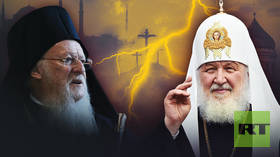
“I appeal to you, brothers, by the name of our Lord Jesus Christ, that all of you agree, and that there be no divisions among you, but that you be united in the same mind and the same judgment.”
1 Corinthians 1:10
2023 may go down in history as a milestone in another major schism in the Christian world. The conflict between the Russian Orthodox Church and the Ecumenical Patriarchate of Constantinople (Istanbul), which has been developing for several years, has rapidly escalated from serious-but-resolvable disagreements to open accusations of heresy. The underlying cause is the political conflict between Russia and the West, with Ukraine at its center.
A turning point in the dispute occurred in the previous decade, in 2018, when the Patriarchate of Constantinople granted Kiev a tomos of autocephaly, meaning it backed its independence from the Moscow Patriarchate. At that time, the Russian Orthodox Church severed ties with Constantinople. However, in 2022, following the start of the Russian military offensive, the situation naturally worsened.
Orthodox Christians have been forced to choose their political loyalties, willingly or out of necessity, at the expense of religious unity.
How significant is this schism? Has politics shattered Christian unity, and "has Christ indeed been divided"?
Point of no return
In July, the senior clergy of the Russian Orthodox Church (ROC) gathered at the Trinity Lavra of St. Sergius in the city of Sergiev Posad, north of Moscow, to hold a Bishops' Conference. The main reason for this gathering was the events in Ukraine over the past few years.
They hadn't convened for such a significant event in a long time. According to the ROC's Charter, the Bishops' Council –the highest body of hierarchical governance in the church– is summoned by the Patriarch and the Holy Synod no less than once every four years, prior to a local council, and in "exceptional cases." However, due to world events, the council had not been convened for six years: its dates were initially postponed because of the Covid-19 pandemic and, in August 2022, the Synod indefinitely postponed the conduct of synodal events due to the international situation.
A Bishops' Conference –a gathering of hierarchs of the ROC to discuss the state of affairs in the church during the inter-council period– had previously taken place in 2015. However, the situation in the Orthodox world did not require any postponements at that time.
This time, the council was almost entirely dedicated to relations between the ROC and the Patriarchate of Constantinople and to the situation of believers in Ukraine. The Russian Church declared a direct confrontation with the Patriarchate of Constantinople, accusing the Ecumenical Patriarchate of distorting Orthodox doctrine.
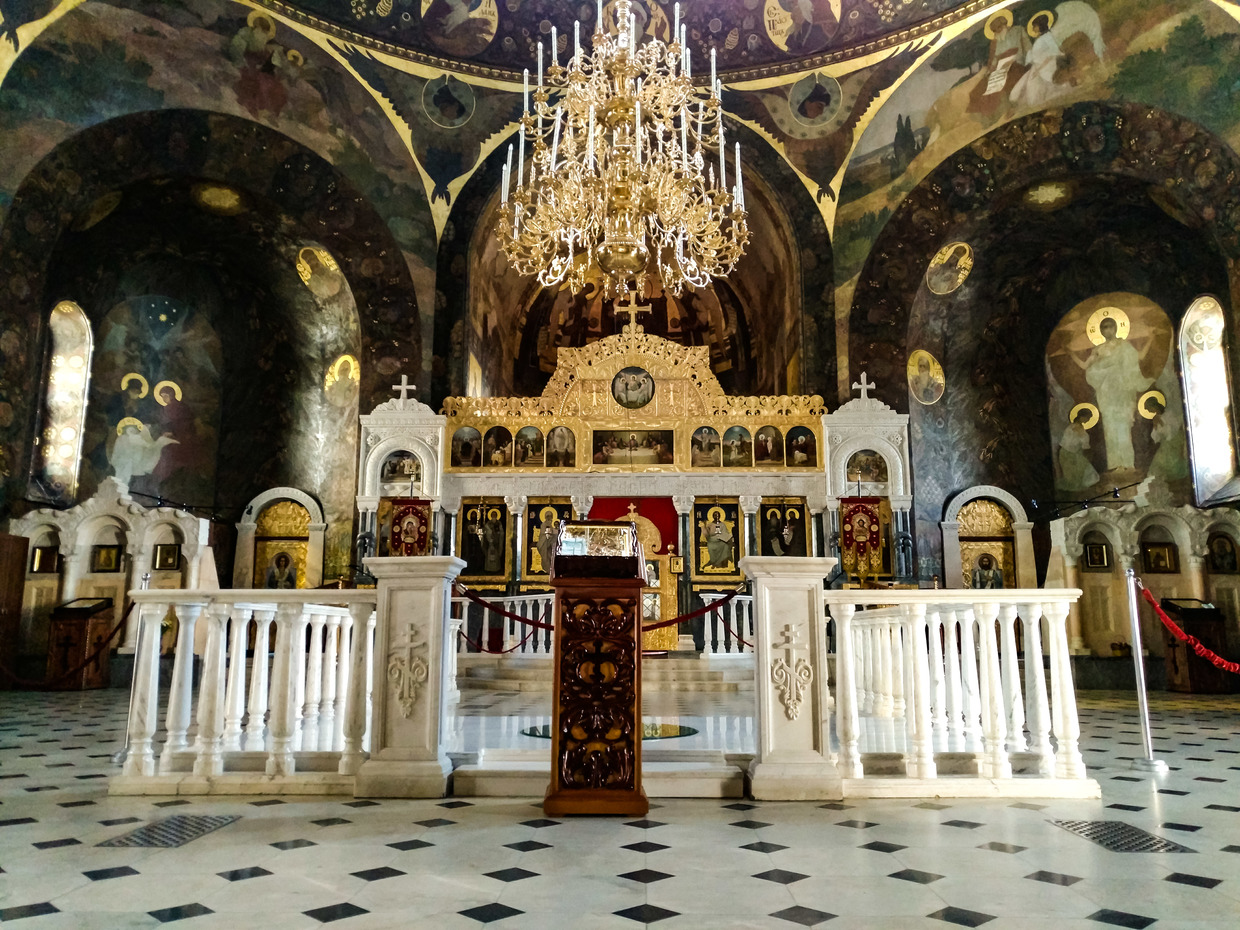
This is evidenced by the report of ROC Patriarch Kirill and by the document adopted by the assembled bishops, titled 'On the Distortion of Orthodox Doctrine on the Church in the Actions of the Hierarchy of the Patriarchate of Constantinople and the Statements of Its Representatives.'
The tone of the statements made by the ROC this summer indicates a profound schism in the Orthodox world, according to Roman Lunkin, Deputy Director of the Institute of Europe at the Russian Academy of Sciences (RAN) and Head of the Center for the Study of Problems of Religion and Society at the Institute of Europe.
"The decisions of the Conference can be compared to the schisms of the 11th century, but only within the Orthodox world. Now there is not only a lack of Eucharistic communion with Constantinople, but also an accusation of violating church traditions," he told the Russian newspaper Kommersant.
Moscow - Kiev - Constantinople
The essence of the disagreements between Constantinople and Moscow stems from the creation of an independent Orthodox Church in Ukraine. In 2018, Ukrainian authorities decided to establish their own Orthodox Church separate from the ROC. With the support of the Ecumenical Patriarch of Constantinople, Bartholomew, the process for its establishment began. In October 2018, the Synod of the Constantinople Church revoked a 17th-century decree that placed the Kiev Metropolis under the jurisdiction of the Moscow Patriarchate. The ROC regarded these actions as encroachments on its canonical territory and suspended canonical communion with Constantinople.
In December of the same year, a so-called unification council of Orthodox churches in Ukraine took place in Kiev, during which the head of the new church structure, the Orthodox Church of Ukraine (OCU), Metropolitan Epiphanius of Kiev, was elected. In early 2019, the Ecumenical Patriarch granted the OCU the tomos of autocephaly. The ROC criticized Constantinople's actions as a gross violation of church canons. Patriarch Kirill of Moscow suggested that there was a deliberate attempt to destroy the ROC: "This is not just a struggle for jurisdiction; it is a struggle to remove the only powerful Orthodox force in the world. They want to squeeze canonical Orthodoxy out of the religious field of Ukraine."
In May 2022, the remaining Ukrainian Orthodox Church under the jurisdiction of Moscow, known as the Ukrainian Orthodox Church (UOC-MP), held an emergency council in Kiev and adopted a resolution declaring its complete independence from the ROC. However, this did not prevent the UOC-MP from facing persecution by Ukrainian authorities, who accused clergy members of having ties to the Moscow Patriarchate.
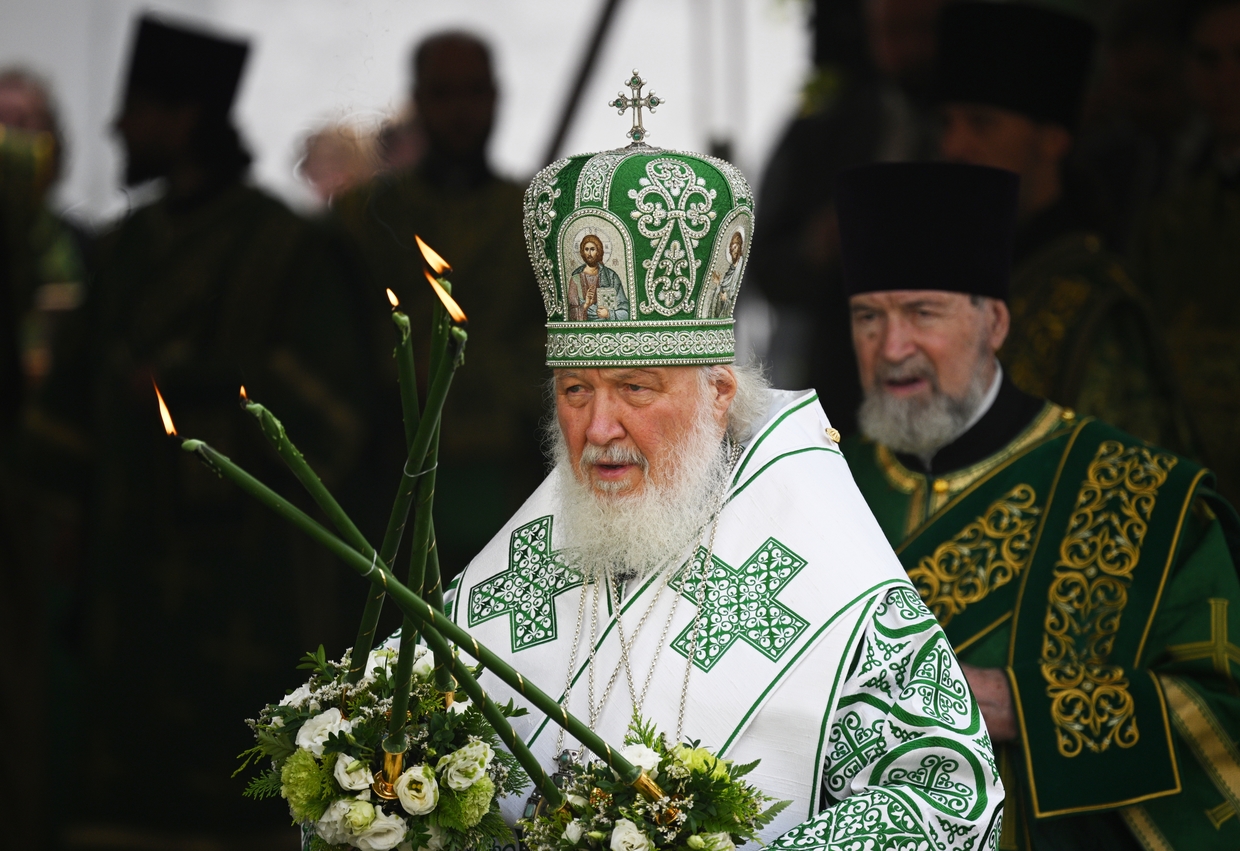
Patriarch Kirill, in his July report commenting on these events, pointed out that Constantinople's actions in Ukraine had led to the "destruction of church unity." He stated that leading hierarchs of Constantinople “had been preparing for a division within Orthodoxy for a long time, with the support of external political forces, engaging in secret negotiations and intrigues.” Patriarch Kirill also mentioned how he'd tried to explain “the objective situation in Ukraine” to Patriarch Bartholomew in 2018, but claimed that “he chose not to listen and instead violated sacred canons by intervening in Ukraine to 'abolish' the hierarchy of the Ukrainian Orthodox Church and legalize the schism by granting it a supposed autocephaly.”
According to Kirill, “this schism has hindered the spiritual communion between the ROC and a significant portion of the Greek Orthodox world, and it has resulted in open persecution against the Ukrainian Orthodox Church by the authorities.”
“Instances of arrests, assaults on clergy members, desecration of holy sites, legal proceedings against several bishops, and the expulsion of Orthodox communities from their churches, have multiplied. The ancient Kiev Pechersk Lavra is under the threat of closure, as its main cathedrals, the Dormition Cathedral and the Refectory Church, have been taken away from the Ukrainian Orthodox Church and are now controlled by schismatics,” he said.
An attempt to take over ROC territories
Constantinople’s foreign policy, particularly the recognition of the independence of the Ukrainian Church, served as an example for other post-Soviet countries.
In September 2022, Lithuanian authorities appealed to Patriarch Kirill and requested the full independence of the Lithuanian Orthodox Church.
Lithuania has expressed the desire to become independent from the Moscow Patriarchate. Prime Minister Ingrida Simonyte wrote a letter to Patriarch Bartholomew, asking him to support Lithuania in its wish to separate from Moscow. The Patriarch of Constantinople had already made an important decision on this, by reinstating five Lithuanian priests whom Moscow had sanctioned for their political statements and support for Ukraine.
In March of this year, at a meeting with Simonyte in Vilnius, Patriarch Bartholomew said: “Today, a new perspective opens up before us, and we have the possibility of working together to create an exarchate of the Ecumenical Patriarchate in Lithuania.”
Patriarch Kirill and the bishops of the ROC condemned this initiative and claimed it would interfere in the ROC’s canonical territory. The Russian Church considers the intentions of the Patriarchate of Constantinople anti-canonical.
A similar situation is unfolding in Latvia. In October of last year, the Latvian Orthodox Church (LOC) also sent a petition to the ROC asking to grant it independence. The reason for the appeal was a law adopted by the Latvian parliament in September, obliging the LOC to declare independence from the ROC.
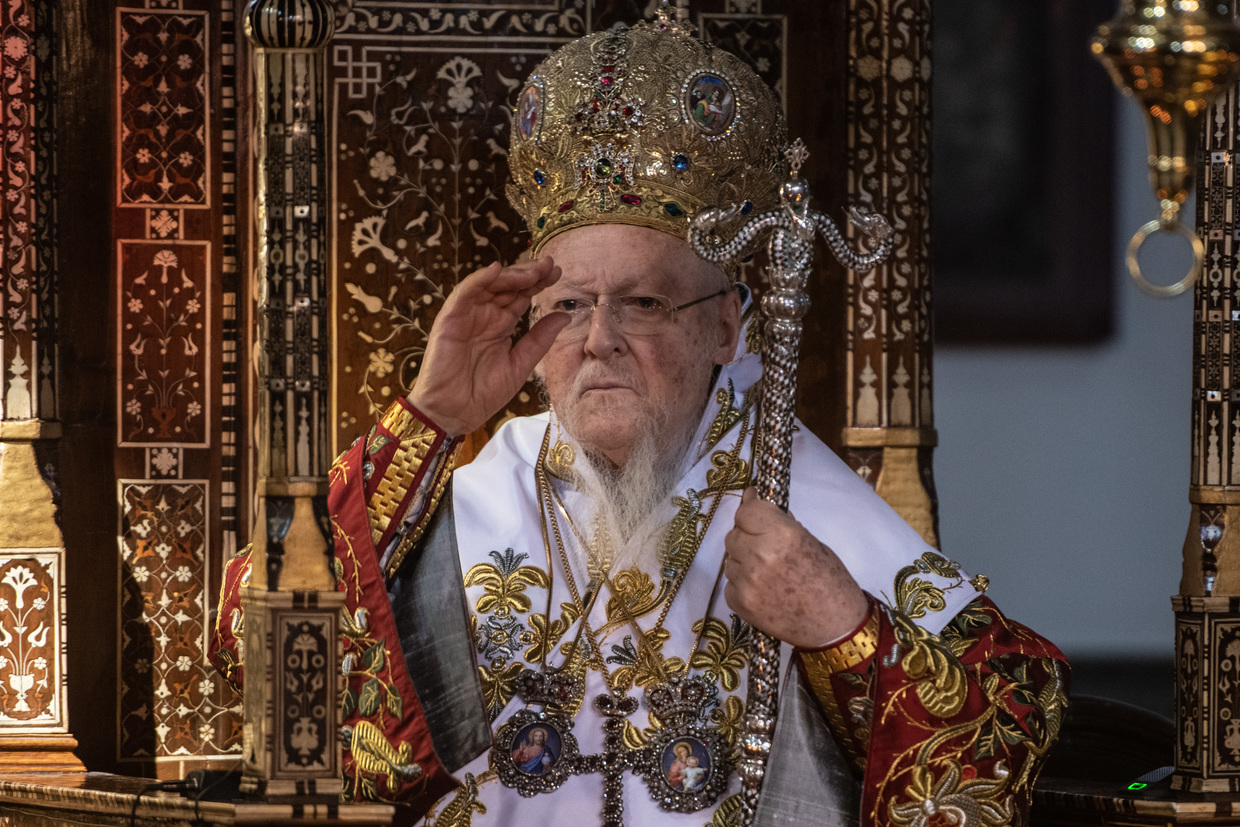
“Inspired by their neighbors, the secular authorities of Latvia decided to go even further and personally proclaimed the fake autocephaly of the Latvian Church,” Patriarch Kirill said at the Bishops’ Conference.
As a result, Constantinople may take control of the new churches of Lithuania and Latvia and Moscow may lose many of its territories, parishes, and congregations. Recalling the persecution of the UOC-MP parishioners in Ukraine, Patriarch Kirill said that the Patriarchate of Constantinople has become “a means in the hands of skillful manipulators” in the “war against Orthodoxy.”
Viewpoint of Constantinople
Constantinople, for its part, is also not inclined towards reconciliation with the Russian Orthodox Church, which only exacerbates the schism in the Orthodox world. Last December Patriarch Bartholomew spoke at a conference on global politics in Abu Dhabi, where he sharply criticized the Church and attempted to call on Western politicians and political scientists present at the forum to confront not only Russia but also the Russian Orthodox Church as the foundation of the Russian world.
Bartholomew devoted his speech to the conflict in Ukraine, calling it "the worst European geopolitical and humanitarian crisis since the end of the Second World War." And the interest in it was justified by "the source of our misfortunes being the consequence of errors in judgment regarding matters related to faith."
The Constantinople Patriarch saw such 'errors' exclusively in the actions of Russia and the Moscow Patriarchate. "The Russian Orthodox Church has sided with the regime of President Vladimir Putin, especially since the election of His Beatitude Patriarch Kirill in 2009," Bartholomew said.
"It actively participates in the promotion of the ideology of Rousskii Mir, of the Russian world, according to which language and religion make it possible to define a coherent whole, encompassing Russia, Ukraine, Belarus, as well as the other territories of the former Soviet Union, and the diaspora. Moscow (in both political power and religious power) would constitute the center of this world, whose mission would be to combat the decadent values of the West. This ideology constitutes an instrument of legitimization of Russian expansionism and the basis of its Eurasian strategy. The link with the past of ethnophyletism and the present of the Russian world is obvious. Faith thus becomes the backbone of the Putin regime's ideology."
From the Phanar's point of view, Russia's main 'crimes' are "the heresy of ethnophyletism," which he understands as "the idea that churches should organize themselves according to the principle of ethnicity, the central marker of which would be language," and the associated "ideology of the Russian world." Essentially, Bartholomew accused the Russian Church of heresy and ecclesiastical racism.
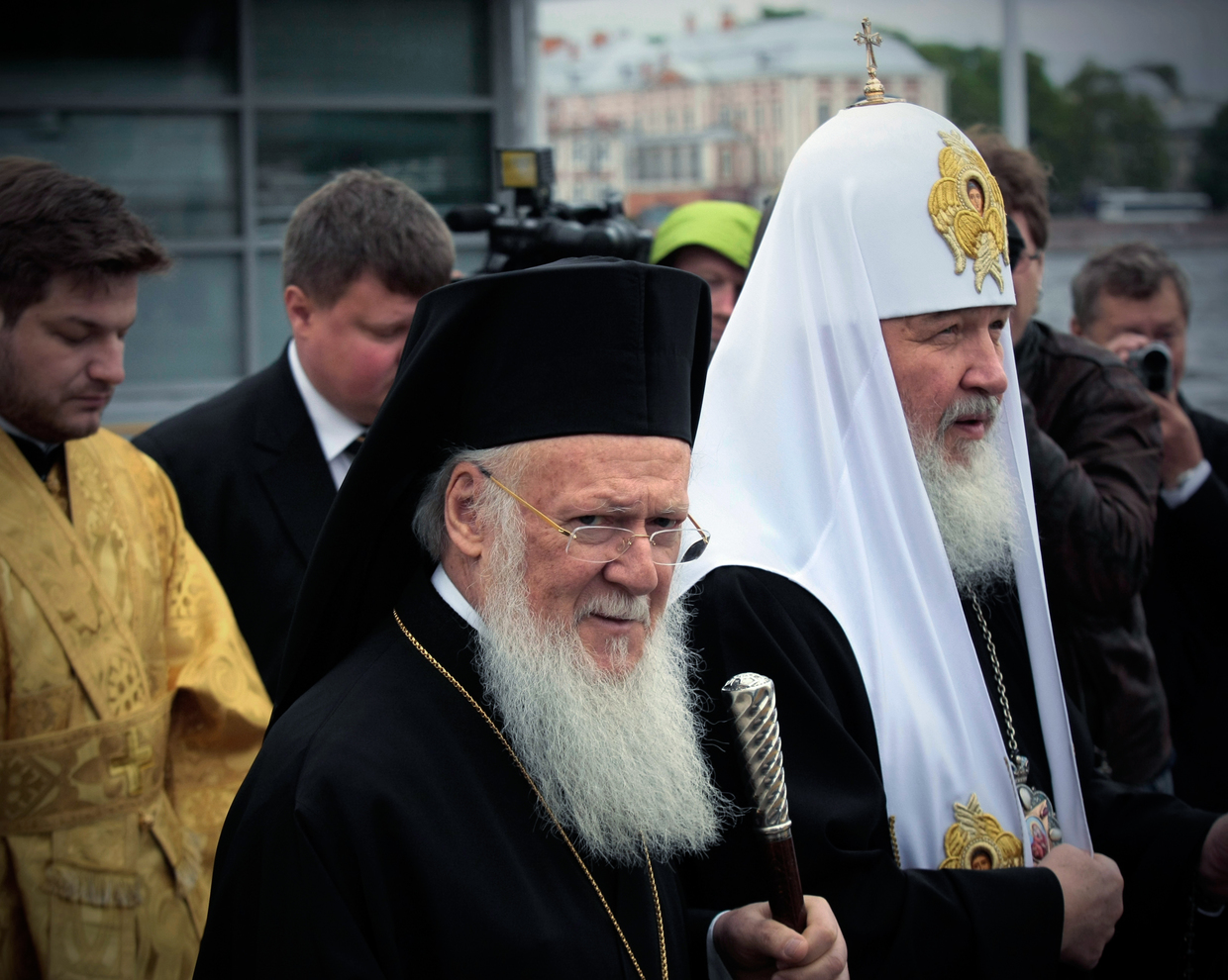
In response to the accusations of the Patriarchate of Constantinople, the ROC said that “from old habit,” Bartholomew’s world of Orthodoxy is limited to the borders of the Ottoman Empire of the 18th and 19th centuries. Ukrainians did not become victims of the war between the USSR and Nazi Germany, but rather “shoulder to shoulder,” together with Russians, won the bloodiest conflict in history. The ROC considered the accusations of ethnophyletism “absurd and vulgar,” and said that it unites millions of believers and hundreds of nations in prayer, holding church services in dozens of languages.
The Moscow Patriarchate also made a “counterattack” of its own and accused Constantinople of being silent about the repressions of the Ukrainian government against the Ukrainian Orthodox Church of the Moscow Patriarchate. It also claimed that some Constantinople clergy support the LGBTQ movement, abortion, and birth control.
The Three Romes
The former head of the missionary department of the Kiev diocese, Archpriest Andrey Tkachev, told RT that the current situation has aggravated some of the biggest problems in world Christianity.
“This whole situation in the Christian world has once again demonstrated the theses of ‘The Three Romes’: the old, second, and third Rome, which is also the final Rome. The ‘old Rome’ completely follows the modern neoliberal scenario, it essentially renounces Jesus Christ. The ‘second Rome’ – Constantinople – behaves the same, if not worse, and also serves the interests of the global liberal agenda. And then there is the ‘third Rome’ – Moscow, which defends the interests of world Christianity and takes the most adequate position in the apocalyptic battle,” the archpriest said.
According to Father Andrey, Constantinople is a “political department that has claimed responsibility for the entire Orthodox world, a responsibility that no one delegated to it.”
“But," he said, "Constantinople is not the place for apostolic preaching. For some reason, the local Patriarch acquired the unprecedented role of the supreme arbiter and the head of the Orthodox world, which God did not give him. This is definitely a sin.”
Moreover, Tkachev expressed doubt that Western clergy could bring about peace in Ukraine.
“Many religious leaders talk about the need for peace. But none of them, except His Holiness Kirill, have ever spoken about false peace and true peace. The prophets Jeremiah and Isaiah speak very harshly about false prophets who say: ‘Peace, peace, when there is no peace’ [Jeremiah 6:14]. In fact, peace is not an end in itself – peace is the fruit, but the goal is being close to God.
“Our wickedness incites war and, in order for us to truly make peace with each other, we first need to make peace with God. No one, neither Bartholomew nor Francis, ever said this. Everyone talks about their own banal understanding of peace, without naming the main reasons for the war: there will be no peace for the sodomites, there will be no peace for those who kill children, there will be no peace for those who change their gender, there will be no peace for thieves and those who do wicked things, and for those who have stopped praying and are immersed in sin up to their nostrils – there will be no peace for them, ever. All the patriarchs, all priests and bishops should proclaim this.
“We need," the archpriest concluded, "to start a serious conversation about peace, about the genesis of war, about the genesis of sin, about the inner connection between sin and war, about the deep godlessness of modern civilizations and the fact that, for humanity, all this will inevitably result in bloodshed. This is simply God's Law.”
